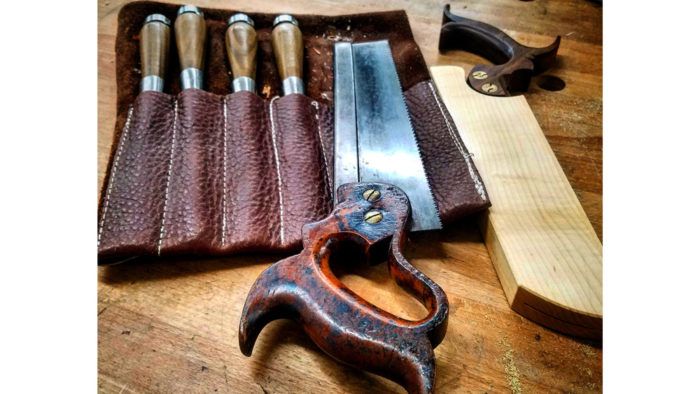The Merits of Shop Class
Bob Miller argues that the purpose of shop class is not to create woodworkers or welders, but instead to help bring revolutionary ideas to fruition.
The purpose of shop class is not to create woodworkers or welders. In the same way, the purpose of English class is not to create writers, nor is biology class taught with the single goal of creating doctors or scientists. Certainly some of the students in these classes will find that they have discovered their life’s work, but for the majority it is simply a class, part of a general education in a broad range of fields.
Really and truly, when was the last time high-school biology was pertinent to your life? Chances are it was right around the time the high school exam came around. So why do we teach these academic subjects knowing that the actual knowledge imparted in the class, practically speaking, will not be used again? The answer is simple. The purpose of biology class is to allow everyone to have a basic understanding of biological processes, so that when we are at the doctor or taking medication we have a rudimentary understanding of the importance of the doctor or the pharmacist.
Shop class is no different.
So why did we, as a culture, from the 1990s forward begin to think that the purpose of shop class was to create woodworkers, welders, or other laborers—and since not everyone was going to be a woodworker or welder, we no longer needed shop class?
This has been a real loss. Shop class is intended to create a basic understanding of the capacity that all human beings possess to create, build, and influence the physical world around us, as we have for thousands of years. Without shop class and without the basic knowledge of our own capacity to build and influence the world, we are stunted. We are unable to realize the potential of the tools at our disposal to bring incredible, beautiful, and revolutionary ideas to reality through the built world.
I propose that we commit ourselves to relearning the importance of shop class. We should return shop class to a place of prominence in our education system, and thereby reclaim our heritage as a civilization of builders, creators, and the architects of our own built world.


















Comments
I can't argue with that. The same goes for PE classes. It's no wonder we start out being overweight. As for the shop classes, we need to get the money allocated for the space, tools, teachers, etc. Schools are strapped for money. Every year the students are being sent out to see if they can get more money beyond what we already pay in taxes.
Agreed. 30-35 years ago schools had "the space, tools, teachers, etc." for shop classes. Then society and our educations system decided that everyone should go to college in order to survive and prosper in the digital/information age.
Obviously, there's a whole lot more that created this problem, but I think this was the beginning of it.
Doug Stowe has been working for years to integrate woodworking into the school curriculum, not just as shop class but as an important part of all classes. Check out his Wisdom of the Hands blog to learn more and to help support his work.
I completely agree. Consider the term "Sloyd".
The word "sloyd" is derived from the Swedish word Slöjd, which translates as crafts, handicraft, or handiwork. It refers primarily to woodwork but also paper-folding and sewing, embroidery, knitting and crochet.
The Sloyd approach was influential in the USA in the late 1800s -- and is the basis for the North Bennett Street School, historically -- and is still a required part of the school curriculum in Scandanavian countries.
It is all about building one's skills to think and act in practically creative ways. Self-mastery, as it were.
We would do well to return to these fundamental principles.
I remember an episode of "The Woodwright's Shop" where Roy pulled out a book of Sloyd. He was almost like a little kid as he went through that.
Jobs where you could cut yourself or get dirty are generally thought of as not where you want to send your kid. Sad... I grew up on a farm with livestock; there were plenty of dirty jobs around! But I still went to college after several years of working as a mechanic. And now it's all about the desk job.
But one has to have a leaning to do things with one's hands, I think. Maybe you wouldn't discover that without a shop class. I never took a shop class and high school for me was in the 70s in a rural town. Maybe that's why; there were plenty of projects at home for me to keep my hands busy. I always loved making model planes and such, now I make furniture for our house and get a lot of enjoyment out of that. But I don't make my living with my hands any more, unless you consider a keyboard requires hands :)
Log in or create an account to post a comment.
Sign up Log in